
Discover the Timeless Beauty of the Nuratau Mountains
Nestled in the heart of Uzbekistan, the Nuratau Mountains offer a serene escape into nature's untouched beauty. This hidden gem is renowned for its dramatic landscapes, featuring rugged peaks, lush valleys, and ancient walnut groves. The mountains are part of the Nuratau-Kyzylkum Biosphere Reserve, where you can witness a unique blend of flora and fauna, some of which are found nowhere else on Earth. The Nuratau Mountains are also rich in cultural heritage. The local villages, with their traditional adobe houses and centuries-old customs, provide a glimpse into the region's storied past. Visitors can explore ancient petroglyphs, historical mausoleums, and the ruins of old fortresses, all of which tell tales of the area's long-standing human settlement. For the adventurous, the Nuratau Mountains are a paradise. Hiking trails of varying difficulty wind through the mountains, offering breathtaking views at every turn. Whether you're an experienced trekker or a casual walker, there's a path for you. The region is also perfect for bird-watching, with over 160 species recorded, including the rare Severtsov's sheep. After a day of exploring, you can relax in a local guesthouse, enjoy traditional Uzbek cuisine, and experience the warm hospitality of the mountain people.
Local tips in Nuratau Mountains
- Plan your visit during spring or autumn for the best weather and vibrant landscapes.
- Carry enough water and snacks, as amenities can be sparse in the mountains.
- Hire a local guide to explore hidden trails and learn about the region's history and culture.
- Respect local customs and traditions, especially when visiting villages and religious sites.
- Bring binoculars for bird-watching and a camera to capture the stunning scenery.
Discover the Timeless Beauty of the Nuratau Mountains
Nestled in the heart of Uzbekistan, the Nuratau Mountains offer a serene escape into nature's untouched beauty. This hidden gem is renowned for its dramatic landscapes, featuring rugged peaks, lush valleys, and ancient walnut groves. The mountains are part of the Nuratau-Kyzylkum Biosphere Reserve, where you can witness a unique blend of flora and fauna, some of which are found nowhere else on Earth. The Nuratau Mountains are also rich in cultural heritage. The local villages, with their traditional adobe houses and centuries-old customs, provide a glimpse into the region's storied past. Visitors can explore ancient petroglyphs, historical mausoleums, and the ruins of old fortresses, all of which tell tales of the area's long-standing human settlement. For the adventurous, the Nuratau Mountains are a paradise. Hiking trails of varying difficulty wind through the mountains, offering breathtaking views at every turn. Whether you're an experienced trekker or a casual walker, there's a path for you. The region is also perfect for bird-watching, with over 160 species recorded, including the rare Severtsov's sheep. After a day of exploring, you can relax in a local guesthouse, enjoy traditional Uzbek cuisine, and experience the warm hospitality of the mountain people.
When is the best time to go to Nuratau Mountains?
Iconic landmarks you can’t miss
Chor Minor Madrasah
Explore the enchanting Chor Minor Madrasah, a historical landmark in Bukhara with stunning architecture and a serene atmosphere.
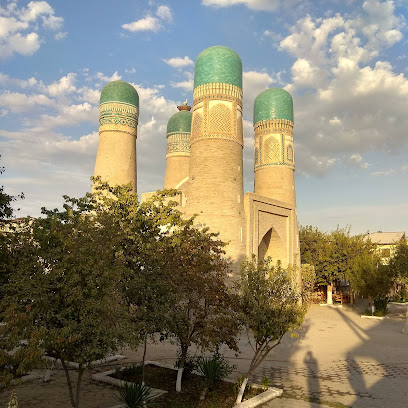
Chashma
Explore Chashma, a sacred pilgrimage site in Uzbekistan, where history meets spirituality amidst breathtaking natural beauty.
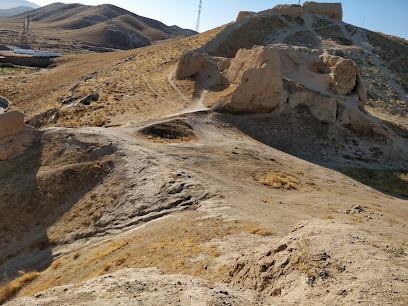
Guest House Ruslan Nurata & Tours
Explore the stunning landscapes of Nurata while enjoying the comfort and hospitality of Guest House Ruslan - your gateway to adventure in Uzbekistan.

Nuratau mountain viewpoint
Discover the breathtaking Nuratau Mountain Viewpoint in Jizzakh Region, Uzbekistan, where stunning vistas and unforgettable hikes await every adventurer.
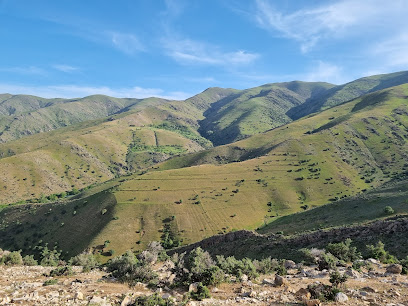
Nurotaзиератгохи
Explore the breathtaking hiking trails and rich cultural heritage of Nurota in Uzbekistan's stunning Navoiy Region.
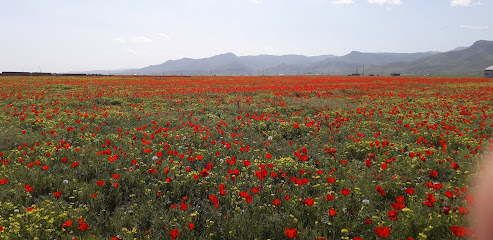
Nur Fortress
Explore the enchanting Nur Fortress in Uzbekistan's Navoiy Region, a historical gem offering breathtaking views and rich cultural heritage.
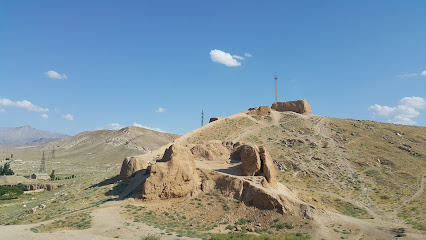
Ancient petroglyphs in the Nuratau Mountains
Discover the ancient petroglyphs in the Nuratau Mountains, a historical treasure in Uzbekistan that showcases prehistoric rock art amidst stunning landscapes.
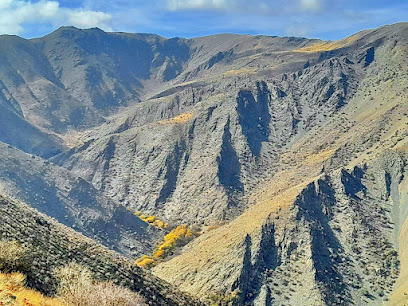
Nurota views
Discover the enchanting Nurota Views in Uzbekistan's Navoiy Region, where history and natural beauty converge for an unforgettable experience.
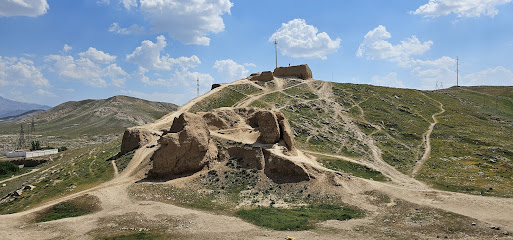
Fortress of Alexander the Great
Discover the historic Fortress of Alexander the Great in Uzbekistan, a remarkable landmark surrounded by breathtaking landscapes and steeped in ancient lore.
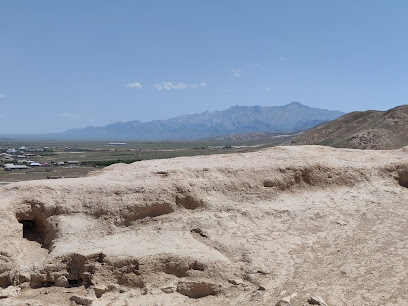
Nuratog
Discover the serene beauty of Nuratog Park in Uzbekistan's Navoiy Region, a perfect retreat for nature lovers and outdoor enthusiasts.

Sentob qishlogʻi
Discover the breathtaking landscapes and serene trails of Sentob Qishlog'i, a hidden hiking paradise in Uzbekistan's Navoiy Region.
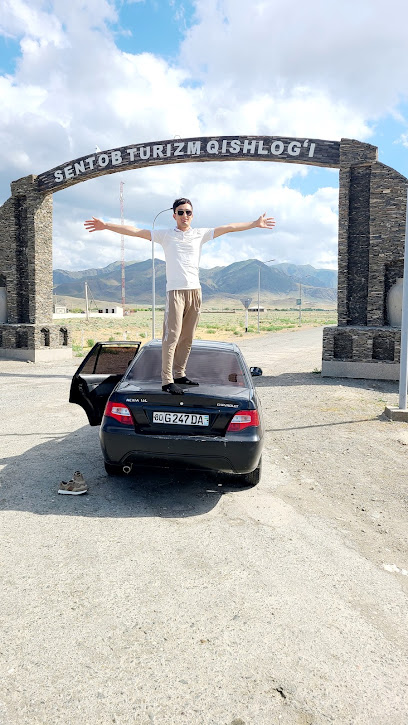
Nurota qóriqxonasi
Explore Nurota Qóriqxonasi, a serene nature preserve in Uzbekistan's Jizzakh Region, perfect for relaxation, hiking, and wildlife observation.

Nurota
Explore Nurota, a breathtaking hiking area in Uzbekistan, where stunning landscapes and rich cultural history await every adventurer.

Gora )) (( Myn-Tukum
Discover the breathtaking Gora Myn-Tukum in Uzbekistan's Tashkent Region, a majestic peak perfect for hiking and enjoying stunning natural vistas.
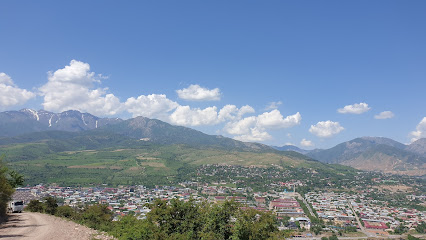
Nurota State Reserve
Discover the breathtaking tranquility of Nurota State Reserve in Uzbekistan, a nature lover's paradise filled with stunning landscapes and rich biodiversity.

Unmissable attractions to see
Siyob Bozor
Explore the vibrant Siyob Bozor in Samarkand, where local culture, delicious food, and unique handicrafts come together in a delightful market experience.
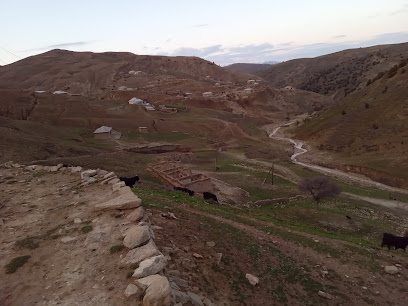
Chimgan
Discover the breathtaking beauty of Chimgan, Uzbekistan, where adventure meets tranquility in the stunning Tashkent mountains.
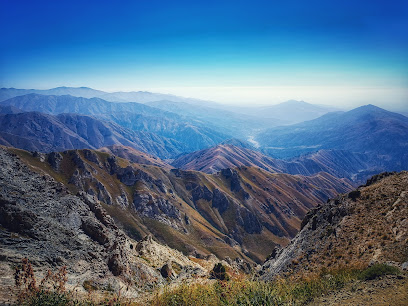
Chashma
Experience the serene beauty and spiritual significance of Chashma in Nurota, a hidden gem in Uzbekistan's rich cultural landscape.
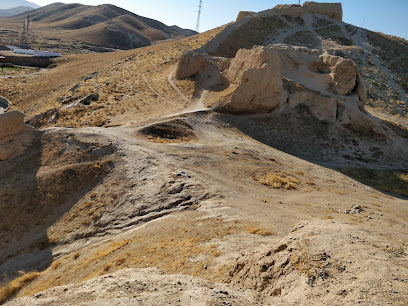
Tourist village - Konigil
Explore the serene hiking trails and breathtaking landscapes of Konigil Tourist Village in Uzbekistan's Samarqand Region for an unforgettable adventure.
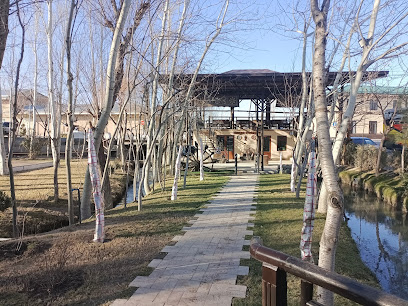
Nur Fortress
Explore the ancient Nur Fortress in Uzbekistan, an architectural marvel rich in history and surrounded by stunning landscapes.
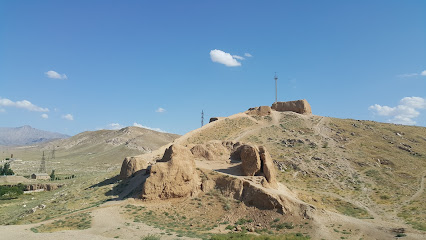
Ancient petroglyphs in the Nuratau Mountains
Discover the ancient petroglyphs in the Nuratau Mountains, a historical treasure showcasing the artistry and culture of Uzbekistan's early inhabitants amidst stunning landscapes.
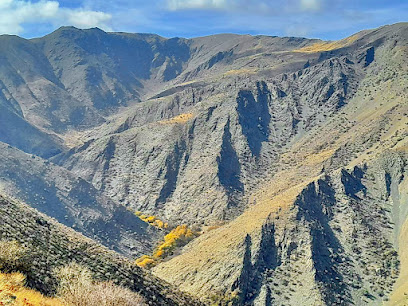
Fortress of Alexander the Great
Discover the historic Fortress of Alexander the Great in Uzbekistan, a captivating blend of ancient architecture and stunning natural beauty.
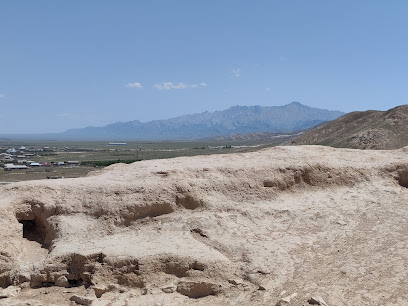
Nurota qóriqxonasi
Explore the enchanting Nurota Nature Preserve in Uzbekistan's Jizzakh Region, a sanctuary of stunning landscapes, diverse wildlife, and rich cultural heritage.

Nuroniylar bog'i
Experience the tranquil beauty of Nuroniylar Bog'i in Uzbekistan's Qashqadaryo Region, a perfect escape for nature lovers and peace seekers.

Nurotov Tizmasi
Discover the breathtaking views and serene landscapes of Nurotov Tizmasi, a hidden gem in the Samarqand Region of Uzbekistan.

Essential places to dine
Nur hayat
Experience authentic Uzbek cuisine at Nur Hayat - where tradition meets taste in Bukhara's vibrant dining scene.
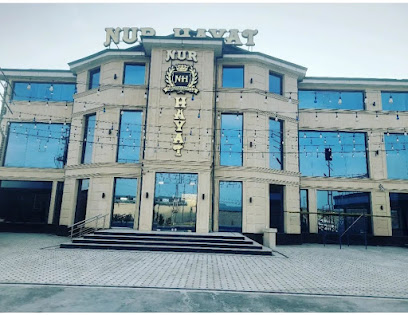
Saloh ota Tandir
Experience authentic Asian flavors at Saloh ota Tandir in Nurota - a culinary haven in Uzbekistan's enchanting Navoiy Region.
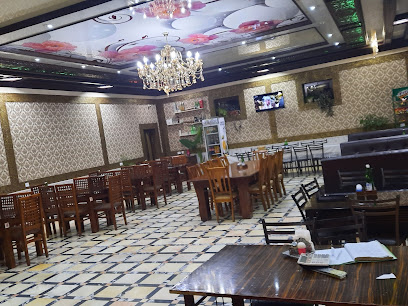
Zahratun Restaurant
Discover the rich tastes of Uzbekistan at Zahratun Restaurant in Turtkul – a culinary haven serving traditional dishes with authentic flair.
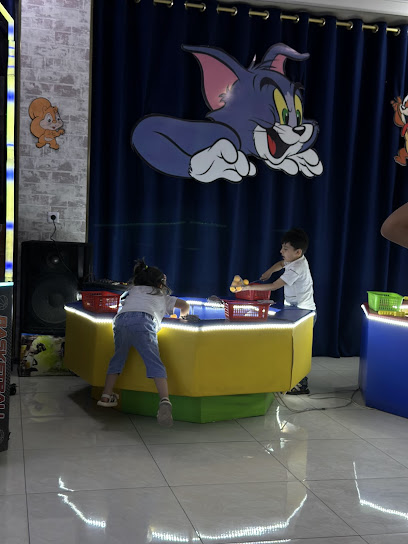
Nurota
Experience the rich flavors of Uzbekistan at Nurota's premier restaurant, where tradition meets taste in every dish.

Altin asyr restaurant
Experience authentic Uzbek cuisine at Altin Asyr Restaurant in Takhiatash - a culinary journey through Karakalpakstan's rich flavors.

Nuriston toʻyxonasi
Experience authentic Uzbek cuisine at Nuriston toʻyxonasi in Qashqadaryo Region – where tradition meets taste.
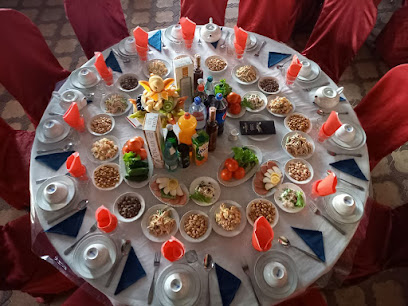
LAZZAT Restaurant
Savor the taste of Uzbekistan at LAZZAT Restaurant—where tradition meets flavor in every dish.
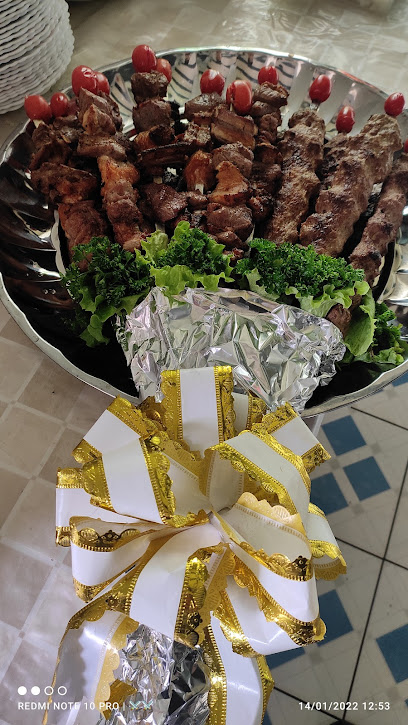
Camping Garden & Cooking Class
Discover the charm of Uzbekistan at Camping Garden & Cooking Class – where nature meets culinary artistry in Nurota's breathtaking landscapes.
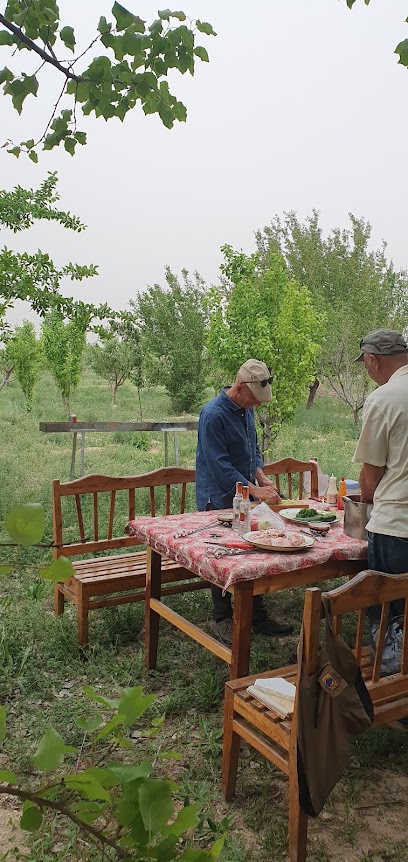
Nur choyxona
Experience authentic Uzbek cuisine in a family-friendly atmosphere at Nur Choyxona in Nurota.

Restoran Gúlistan
Experience the authentic flavors of Uzbekistan at Restoran Gúlistan in Chimbay - A must-visit culinary destination for every traveler.
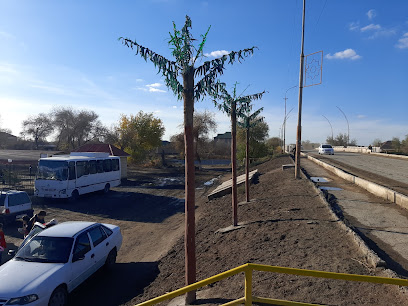
Ismat Bobo oshxonasi
Discover authentic Uzbek cuisine at Ismat Bobo Oshxonasi in Nurota—a must-visit for food lovers exploring Uzbekistan's rich culinary heritage.

Nurillo bobo Choyxonasi
Experience authentic Uzbek cuisine at Nurillo Bobo Choyxonasi, where tradition meets flavor in every delicious dish.

Orzu
Experience authentic Uzbek cuisine at Orzu in Nurmanbay – where tradition meets flavor in every dish.

Diyor choyxonasi Nurota
Experience authentic Central Asian cuisine and warm hospitality at Diyor Choyxonasi in Nurota, where tradition meets taste.

,,BEK,, tuyxonasi.
Discover authentic Uzbek flavors at BEK Restaurant in Nurota - where tradition meets taste in every dish.

Markets, malls and hidden boutiques
To'maris Nur
Discover the vibrant shopping experience at To'maris Nur, Urgench's premier hypermarket, featuring fresh produce and local delicacies.
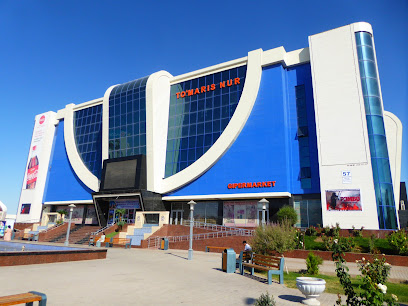
Human House
Explore the charm of Uzbekistan at Human House, your destination for unique gifts and authentic local crafts in Tashkent.
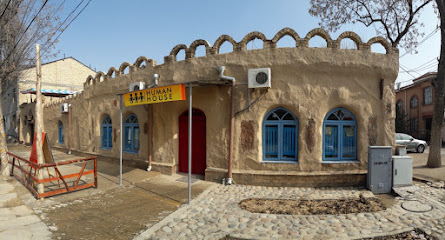
Guest House Ruslan Nurata & Tours
Experience the warmth of Uzbek hospitality at Guest House Ruslan Nurata, your ideal base for adventure and cultural exploration.

Nuratau mountain viewpoint
Explore the breathtaking Nuratau Mountain viewpoint in Uzbekistan, a hiker's paradise with stunning vistas and serene natural beauty.
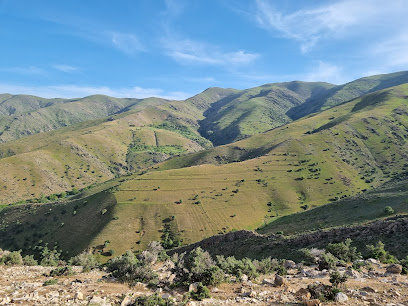
Nurotaзиератгохи
Explore Nurotaзиератгохи: a stunning hiking area in Uzbekistan's Navoiy Region, offering breathtaking landscapes and rich historical trails.
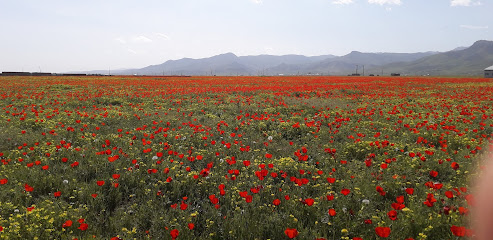
Camping Garden & Cooking Class
Discover the beauty of Nurota at Camping Garden & Cooking Class—where outdoor adventure meets culinary experiences in Uzbekistan.
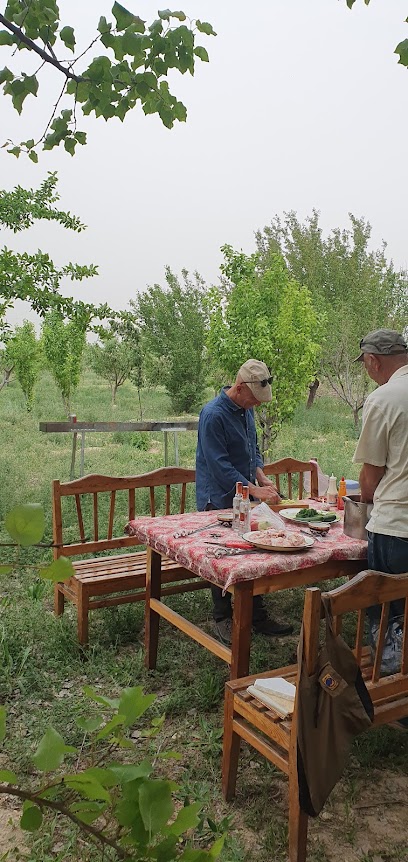
Ancient petroglyphs in the Nuratau Mountains
Explore the ancient petroglyphs of the Nuratau Mountains, a historical gem in Uzbekistan showcasing prehistoric artistry amidst stunning landscapes.
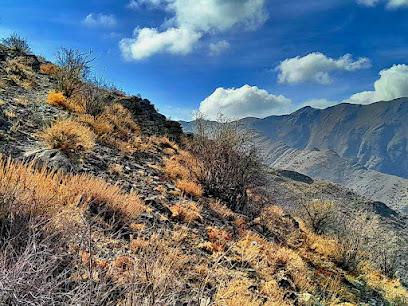
Nur story
Explore Nur Story, a hidden gem in Yangiyer, offering a vast selection of hardware supplies and tools for all your DIY needs in Uzbekistan.

Supermarket Nur
Discover the essence of Uzbekistan at Supermarket Nur, where local products and culture come together in Koshrabad's vibrant marketplace.
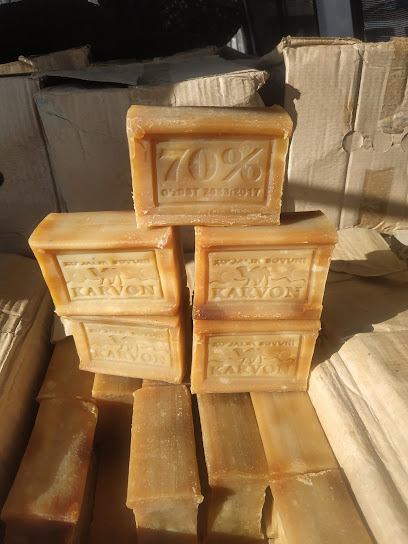
Nur Market
Explore the vibrant Nur Market in Nurota, where local flavors and traditional crafts await every curious traveler.
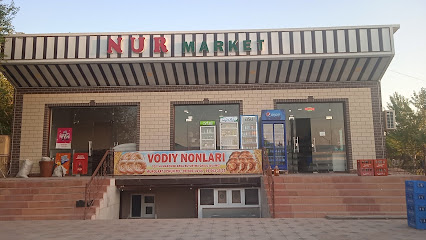
Nurota
Discover the breathtaking hiking trails and rich cultural history of Nurota, a hidden paradise in Uzbekistan's Navoiy region.

Nurota Mustaqillik Kids shop
Explore the vibrant world of children's fashion at Nurota Mustaqillik Kids Shop, where style meets comfort in every piece.
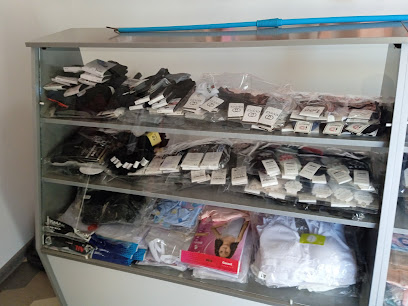
Qumri butka
Discover Qumri Butka in Kiziltepa, where local craftsmanship meets cultural heritage in a charming store.

Nurota qóriqxonasi
Explore the breathtaking beauty of Nurota Qóriqxonasi, a serene nature preserve in Uzbekistan's Jizzakh Region, perfect for nature lovers and adventure seekers.

Nurota State Reserve
Discover the breathtaking landscapes and biodiversity of Nurota State Reserve, a serene nature preserve in Uzbekistan's Jizzakh Region.

Essential bars & hidden hideouts
Steam Bar
Discover the vibrant nightlife of Tashkent at Steam Bar, where local culture meets a lively atmosphere for an unforgettable experience.
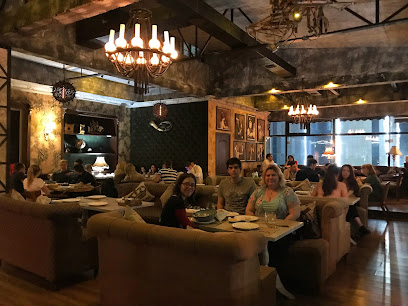
The Irish Pub & Restaurant
Discover the essence of Irish culture at The Irish Pub & Restaurant in Tashkent, where hearty dishes and lively atmosphere await every traveler.
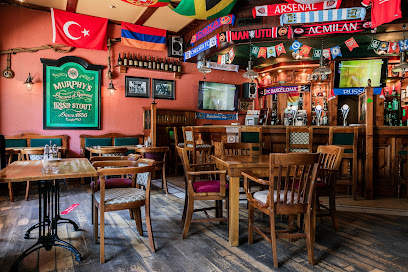
CMI bar
Discover Tashkent's nightlife at CMI Bar, where exquisite cocktails and a vibrant atmosphere create unforgettable experiences.

7 Fridays
Experience the vibrant nightlife at 7 Fridays, a popular bar in Tashkent with an extensive drink menu and lively atmosphere.
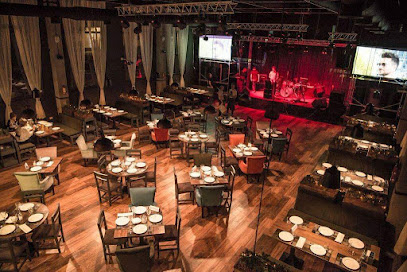
Bla Bla Bar
Experience the vibrant nightlife of Tashkent at Bla Bla Bar, where lively atmosphere meets creative cocktails and friendly service.

Peggy's Bar
Discover Peggy's Bar, Tashkent's vibrant spot for local cuisine and drinks, where every visit promises a unique taste of Uzbekistan's nightlife.
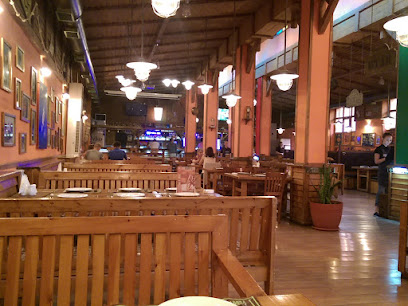
Blues Bar
Discover the vibrant nightlife of Samarkand at Blues Bar, where great drinks and live music create an unforgettable experience.
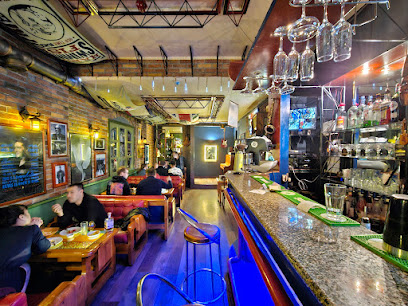
Bier Regen
Experience the best of Tashkent's brewing culture at Bier Regen, a lively brewpub offering innovative craft beers and delicious food.
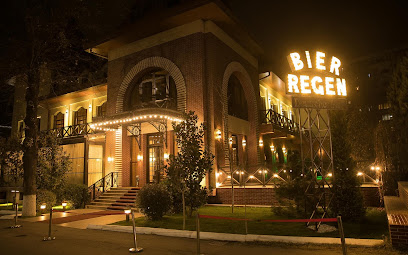
Green Bear Bar
Discover the lively spirit of Samarkand at Green Bear Bar, where culture meets nightlife in a unique and welcoming atmosphere.
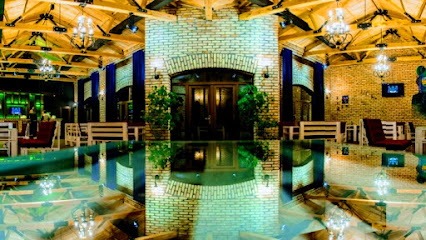
Ye Old Chelsea Arms
Discover the vibrant nightlife and local flavors at Ye Old Chelsea Arms, Tashkent's charming pub for travelers.
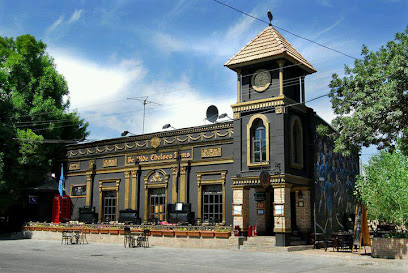
Beer Street Pub
Discover the lively spirit of Samarkand at Beer Street Pub, a perfect blend of local brews, delicious cuisine, and vibrant entertainment.
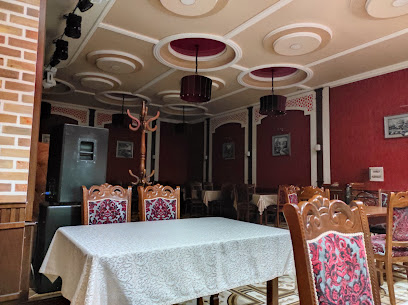
Guest House Ruslan Nurata & Tours
Discover the charm of Uzbekistan at Guest House Ruslan Nurata, where cultural immersion meets outdoor adventure in a welcoming environment.

The Bar Speak Easy
Discover the vibrant nightlife of Tashkent at The Bar Speak Easy, where expertly crafted cocktails and a cozy atmosphere await every visitor.
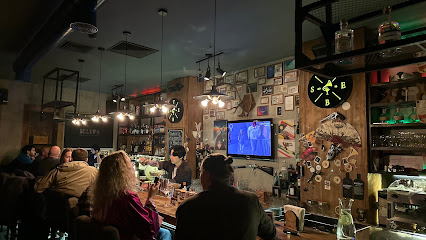
VM Bar
Experience Tashkent's nightlife at VM Bar, a vibrant spot for cocktails and local brews in a modern atmosphere.
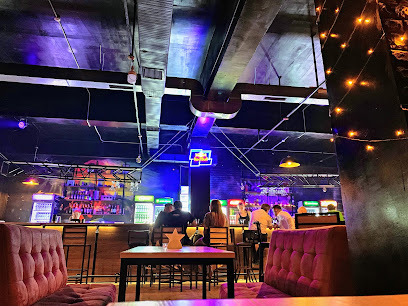
Local Phrases about Nuratau Mountains
-
- HelloСалом
[Salom] - GoodbyeХайр
[Hayr] - YesҲа
[Ha] - NoЙўқ
[Yo'q] - Please/You're welcomeМарҳамат
[Marhamat] - Thank youРаҳмат
[Rahmat] - Excuse me/SorryКечиринг
[Kechiring] - How are you?Қалайсиз?
[Qalaysiz?] - Fine. And you?Жуда ёхуд. Сиз чиқмисиз?
[Juda yohud. Siz chiqmisiz?] - Do you speak English?Сиз инглиз тилидамисиз?
[Siz ingliz tilidamisiz?] - I don't understandМени бўлмайди
[Meni bolmaydi]
- HelloСалом
-
- I'd like to see the menu, pleaseМенюни кўрмоқчиман, марҳамат
[Menyuni ko'rmoqchiman, marhamat] - I don't eat meatМен гўсфурмайман
[Men go'sfurmayman] - Cheers!Сайён
[Sayon] - I would like to pay, pleaseТўламоқчиман, марҳамат
[Tolamoqchiman, marhamat]
- I'd like to see the menu, pleaseМенюни кўрмоқчиман, марҳамат
-
- Help!Ёрдам!
[Yordam!] - Go away!Узинг
[Uzing] - Call the Police!Полицияни чақиринг!
[Policiyani chaqiring!] - Call a doctor!Доктор чақиринг!
[Doktor chaqiring!] - I'm lostМен йўлни йўқолдим
[Men yo'lni yo'qoldim] - I'm illМен касалман
[Men kasalman]
- Help!Ёрдам!
-
- I'd like to buy...Сотиб олишни истайман...
[Sotib olishni istayman...] - I'm just lookingФақат кўрмоқчиман
[Faqat ko'rmoqchiman] - How much is it?Неччики?
[Nechchiki?] - That's too expensiveБу жуда қиммат
[Bu juda qimmat] - Can you lower the price?Нархни саволлайсизми?
[Narxni savollaysizmi?]
- I'd like to buy...Сотиб олишни истайман...
-
- What time is it?Соатқа қанча?
[Soatqa qancha?] - It's one o'clockБир соат
[Bir soat] - Half past (10)Он бешдан кейинги
[On beshdan keyingi] - MorningТун
[Tun] - AfternoonКеч
[Kech] - EveningКечаси
[Kechasi] - YesterdayКеча
[Kecha] - TodayБугун
[Bugun] - TomorrowЭртага
[Ertaga] - 11
[1] - 22
[2] - 33
[3] - 44
[4] - 55
[5] - 66
[6] - 77
[7] - 88
[8] - 99
[9] - 1010
[10]
- What time is it?Соатқа қанча?
-
- Where's a/the...?... қаерда?
[... qayerda?] - What's the address?Манзили қандай?
[Manzili qanday?] - Can you show me (on the map)?Менга (харитада) кўрсатасизми?
[Menga (haritada) korsatisizmi?] - When's the next (bus)?Кейинги (автобус) қачон?
[Keyingi (avtobus) qachon?] - A ticket (to ....)Чипта (.... га)
[Chipta (.... ga)]
- Where's a/the...?... қаерда?
History of Nuratau Mountains
-
The Nuratau Mountains have been home to human settlements for thousands of years. Archaeological evidence suggests that the region was inhabited as far back as the Neolithic period. Ancient petroglyphs, found on rock surfaces throughout the mountains, depict scenes of daily life, hunting, and rituals, providing a glimpse into the lives of early inhabitants.
-
During his conquests in the 4th century BCE, Alexander the Great passed through the Nuratau Mountains. The strategic location of the mountains made them a significant landmark on his route to Central Asia. Local legends and historical accounts recount the interactions between Alexander's forces and the indigenous populations, highlighting the region's importance in ancient military campaigns.
-
The Nuratau Mountains were a crucial part of the Silk Road network, which facilitated trade between the East and West. Merchants and caravans traversed the mountains, bringing with them goods, ideas, and cultural exchanges. The remnants of caravanserais and ancient trade routes can still be found, illustrating the mountains' role as a nexus of historical commerce.
-
During the medieval period, the Nuratau Mountains were fortified with numerous strongholds and castles. These fortifications were constructed to protect against invasions and to control the strategic passes through the mountains. Notable examples include the ruins of Nur Fortress and the remnants of other military structures that stand as testimony to the region's turbulent history.
-
The Nuratau Mountains are home to several Sufi shrines and holy sites, which have been places of pilgrimage for centuries. These shrines, such as the revered Nurata Shrine, are associated with prominent Sufi saints and spiritual leaders. They continue to attract visitors seeking spiritual solace and connection to the region's rich religious heritage.
-
During the Soviet era, the Nuratau Mountains underwent significant changes as collective farms were established to boost agricultural production. The region saw the implementation of various Soviet policies aimed at transforming traditional lifestyles. Today, the remnants of these collective farms offer a glimpse into the socio-economic transformations that occurred during the 20th century.
-
In recent decades, efforts have been made to preserve the natural and cultural heritage of the Nuratau Mountains. The establishment of the Nuratau-Kyzylkum Biosphere Reserve has been a significant step in promoting sustainable tourism and conservation. This initiative aims to protect the unique biodiversity of the region while preserving its historical and cultural landmarks for future generations.
Nuratau Mountains Essentials
-
The Nuratau Mountains are located in the Navoi and Jizzakh regions of Uzbekistan. The nearest major city with an international airport is Tashkent, the capital of Uzbekistan. From Tashkent, you can take a train or bus to Samarkand or Navoi, which are closer to the Nuratau Mountains. The journey from Tashkent to Samarkand typically takes around 2-3 hours by high-speed train. From Samarkand or Navoi, you can hire a taxi or use local buses to reach your destination in the Nuratau Mountains.
-
While exploring the Nuratau Mountains, you have several transportation options. Local buses and minibuses (marshrutkas) connect the small villages within the region. Taxis are also available and can be hired for day trips or specific destinations. For a more immersive experience, consider renting a bicycle or hiking to explore the scenic trails. Car rentals are available in major cities like Samarkand and Navoi, providing flexibility for your travel plans.
-
The official currency in Uzbekistan is the Uzbekistani Som (UZS). Credit cards are accepted in larger hotels and some restaurants, but it is advisable to carry cash, especially when visiting rural areas like the Nuratau Mountains. ATMs are available in larger towns like Samarkand and Navoi, but may be scarce in smaller villages. Ensure you have enough cash for your needs before heading into the mountains.
-
The Nuratau Mountains are generally safe for tourists, but standard travel precautions should be taken. Avoid walking alone at night in unfamiliar areas and keep an eye on your belongings in crowded places. There are no specific high-crime areas targeting tourists, but staying vigilant and aware of your surroundings is always wise. It's also a good idea to inform someone of your travel plans, especially if you plan on hiking or exploring remote areas.
-
In case of emergency, dial 103 for medical assistance and 102 for police. Medical facilities are available in Navoi and Samarkand, but may be limited in smaller villages. It is recommended to have travel insurance that covers medical emergencies. Pharmacies are available in larger towns where you can purchase over-the-counter medications. For minor injuries or illnesses, local villagers are often helpful and willing to assist.
-
Fashion: Do dress modestly, especially when visiting religious sites or rural communities. Avoid wearing revealing clothing. Religion: Do respect local customs and traditions. Always cover your head when entering mosques or other religious sites. Public Transport: Do be respectful and give up your seat to elderly passengers. Don’t eat or drink on public transport. Greetings: Do greet people with a handshake. A slight bow of the head is also a sign of respect. Eating & Drinking: Do try local delicacies and accept food offerings graciously. Don’t refuse hospitality, as it is considered impolite.
-
To experience the Nuratau Mountains like a local, visit the local markets where you can buy fresh produce and traditional Uzbek goods. Engage with locals, as they are often friendly and willing to share stories about the region’s history and culture. Don’t miss visiting the Nuratau Nature Reserve, where you can see unique wildlife and enjoy guided tours. For a unique cultural experience, participate in a traditional homestay program, where you can stay with a local family and learn about their way of life.
Trending Landmarks in Nuratau Mountains
-
Chor Minor Madrasah
-
Chashma
-
Guest House Ruslan Nurata & Tours
-
Nuratau mountain viewpoint
-
Nurotaзиератгохи
-
Nur Fortress
-
Ancient petroglyphs in the Nuratau Mountains
-
Nurota views
-
Fortress of Alexander the Great
-
Nuratog
-
Sentob qishlogʻi
-
Nurota qóriqxonasi
-
Nurota
-
Gora )) (( Myn-Tukum
-
Nurota State Reserve
Nearby Cities to Nuratau Mountains
-
Things To Do in Jizzakh
-
Things To Do in Samarkand
-
Things To Do in Panjakent
-
Things To Do in Shakhrisabz
-
Things To Do in Navoi
-
Things To Do in Istaravshan
-
Things To Do in Tashkent
-
Things To Do in Qarshi
-
Things To Do in Khujand
-
Things To Do in Tursunzoda
-
Things To Do in Chirchiq
-
Things To Do in Dushanbe
-
Things To Do in Bukhara
-
Things To Do in Vahdat
-
Things To Do in Angren







